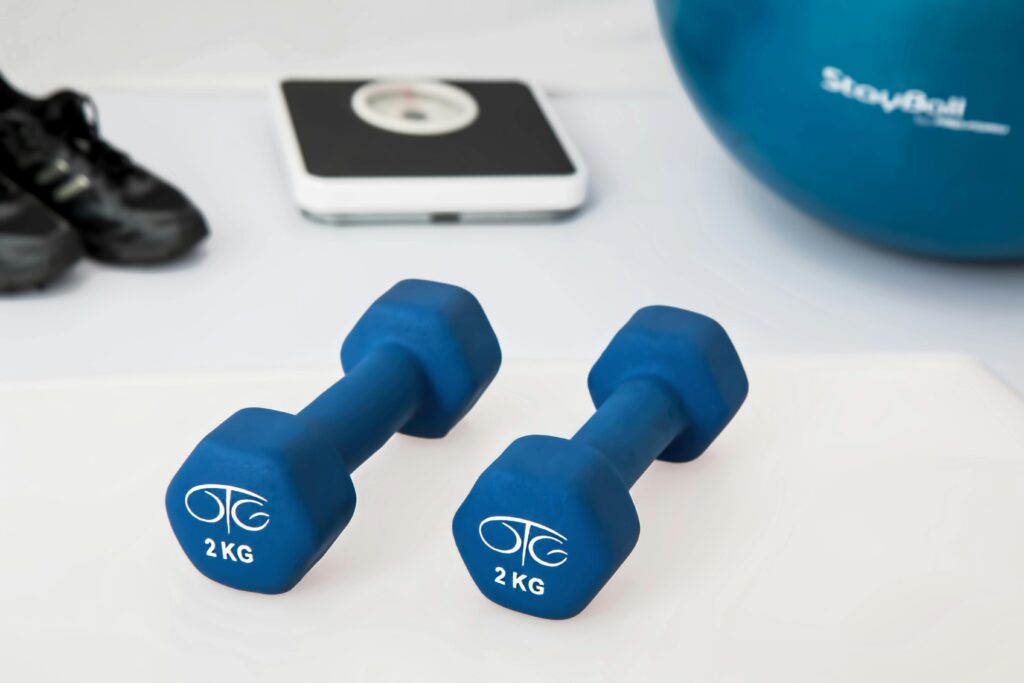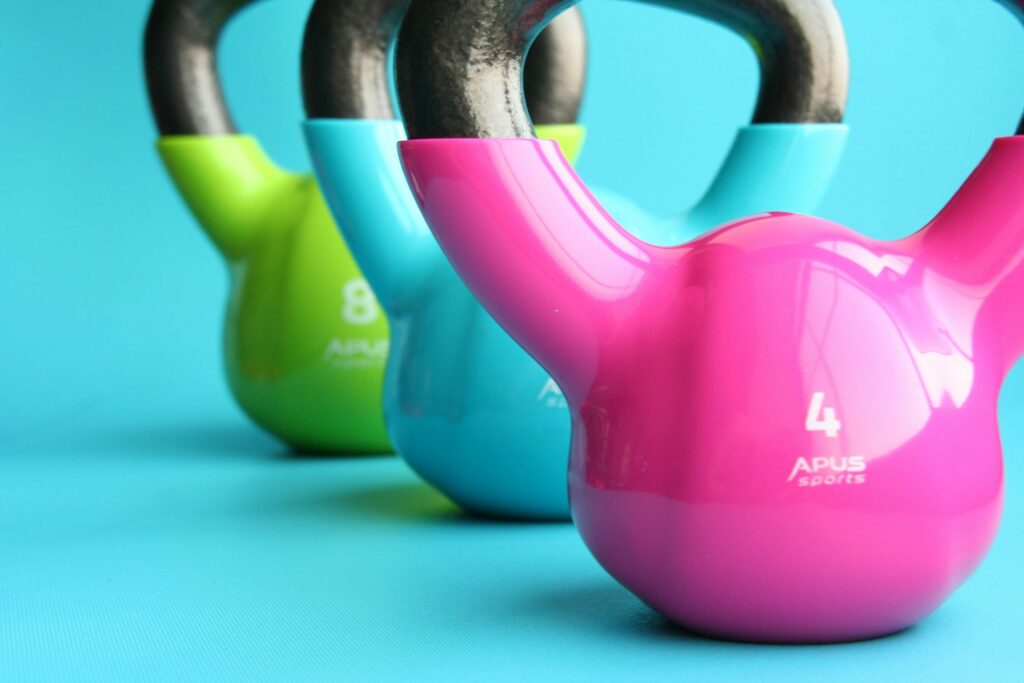

INTRODUCTION ON HEALTH AND FITNESS
Health and fitness play a vital role in leading a balanced and fulfilling life. Health refers to the overall physical, mental, and emotional well-being of a person, while fitness focuses on the body’s ability to perform daily activities with strength, stamina, and flexibility. In today’s fast-paced world, maintaining good health and staying fit has become increasingly important to cope with stress, prevent diseases, and enhance the quality of life. Regular exercise, a nutritious diet, adequate sleep, and positive lifestyle habits are essential components of a healthy and fit lifestyle. By prioritizing health and fitness, individuals can not only increase their life expectancy but also enjoy a more energetic and productive life.
WHY IS MAINTAINING HEALTH AND FITNESS IMPORTANT
Fitness and health are essential for living a long, active, and meaningful life. Good health helps prevent chronic diseases such as diabetes, heart disease, and obesity, while fitness improves physical strength, endurance, and flexibility. Together, they boost the immune system, increase energy levels, and improve mood by reducing stress and anxiety. Mental clarity, better sleep, and higher self-confidence are also results of a healthy and fit lifestyle. Most importantly, fitness and health allow individuals to perform everyday tasks with ease, stay independent as they age, and enjoy a higher quality of life. Taking care of your body and mind is the foundation for personal well-being and long-term happiness.


FITNESS
Fitness refers to a person’s ability to carry out daily tasks efficiently without feeling overly tired, while still having enough energy for leisure activities and emergencies. It includes several key components such as cardiovascular endurance, muscular strength, flexibility, and body composition. Maintaining fitness through regular physical activity, such as walking, jogging, swimming, or strength training, helps improve heart health, build strong muscles and bones, and boost metabolism. Fitness not only enhances physical appearance but also supports mental health by reducing stress, anxiety, and depression. By incorporating exercise into daily routines, individuals can lead healthier, more energetic, and more balanced lives.
HEALTH
Health is a state of complete physical, mental, and social well-being, not merely the absence of disease or illness. It involves taking care of the body through proper nutrition, regular exercise, sufficient sleep, and avoiding harmful habits like smoking or excessive drinking. Good health allows individuals to function effectively in their daily lives, make sound decisions, and build strong relationships. Mental and emotional health are equally important, as they influence how we handle stress, interact with others, and manage challenges. Maintaining good health is essential for leading a happy, productive, and fulfilling life, and it forms the foundation for overall well-being.


STEPS IN MAINTAINING YOUR HEALTH
Eat a balanced diet
Exercise regularly
Stay hydrated
Get enough sleep
- EAT A BALANCED DIET
Eating a balanced diet is essential for maintaining good health and overall well-being. It provides the body with the right amount of nutrients, including carbohydrates, proteins, fats, vitamins, and minerals, needed for energy, growth, and repair. A balanced diet includes a variety of foods such as fruits, vegetables, whole grains, lean proteins, and dairy products, ensuring that all nutritional needs are met. It helps boost the immune system, supports proper body functioning, and reduces the risk of chronic diseases like obesity, diabetes, and heart problems. Making healthy food choices and eating in the right proportions is key to staying fit and energetic.


ADVANTAGES OF EATING A BALANCED DIET
Improves overall health – Provides essential nutrients for proper body functioning.
Boosts energy levels – Ensures the body has enough fuel to stay active throughout the day.
Strengthens the immune system – Helps the body fight off illnesses and infections.
Supports growth and development – Especially important for children and teenagers.
Maintains a healthy weight – Prevents obesity and supports weight management.
Reduces risk of chronic diseases – Lowers the chances of heart disease, diabetes, and certain cancers.
Improves mental health – Supports brain function and can reduce symptoms of anxiety and depression.
Promotes healthy skin, hair, and nails – Due to the intake of vitamins and minerals.
Enhances digestion – Fiber-rich foods aid in regular bowel movements and gut health.
Improves sleep quality – A healthy diet can lead to better and more restful sleep.

2. EXERCISE REGULARLY
Regular exercising offers numerous advantages for both physical and mental health. It helps strengthen muscles, improve cardiovascular health, and increase overall stamina and flexibility. Engaging in regular physical activity supports healthy weight management, boosts the immune system, and reduces the risk of chronic conditions such as heart disease, diabetes, and high blood pressure. Exercise also enhances mental well-being by reducing stress, anxiety, and symptoms of depression, while promoting better sleep and improved mood. Additionally, it increases energy levels and concentration, making daily tasks easier and more efficient. Overall, regular exercise plays a vital role in leading a healthy and active lifestyle.
STAY HYDRATED
Staying hydrated is essential for maintaining good health and proper body function. It helps regulate body temperature, keeps joints lubricated, and supports healthy digestion. Proper hydration also aids in transporting nutrients and oxygen to cells, removing waste, and keeping organs functioning efficiently. It improves energy levels, enhances brain function, and helps maintain clear and healthy skin. Staying hydrated can also prevent headaches, fatigue, and muscle cramps. Overall, drinking enough water each day is crucial for physical performance, mental alertness, and overall well-being.

GET ENOUGH SLEEP
Staying hydrated is one of the most important yet often overlooked aspects of maintaining good health. Water plays a crucial role in nearly every function of the human body. It helps regulate body temperature through sweating and respiration, aids in digestion by helping break down food and absorb nutrients, and supports circulation by transporting essential vitamins and minerals to cells. Proper hydration ensures that organs like the kidneys, heart, and brain function efficiently, and it helps remove waste products and toxins through urine and sweat. Drinking enough water also improves physical performance, reduces the risk of cramps and fatigue during exercise, and keeps joints lubricated to prevent injury. On a cognitive level, staying hydrated enhances focus, alertness, and short-term memory, while reducing symptoms like headaches, mood swings, and confusion that can result from dehydration. Additionally, hydration benefits the skin by keeping it supple, reducing dryness and the appearance of wrinkles, and supporting a healthy complexion. Especially in hot weather or during intense physical activity, maintaining fluid balance becomes even more essential. Overall, staying well-hydrated is key to feeling energetic, thinking clearly, and keeping the body functioning at its best every day.


WHY SHOULD PEOPLE ADAPT TO GOOD HEALTH AND FITNESS
People should adapt to good health and fitness because it is essential for leading a happy, active, and fulfilling life. Maintaining good health helps the body function efficiently and prevents many lifestyle-related diseases such as obesity, diabetes, heart disease, and high blood pressure. Regular physical activity, combined with a balanced diet, strengthens the immune system, improves digestion, boosts metabolism, and helps maintain a healthy weight. Fitness also plays a key role in enhancing mental health by reducing stress, anxiety, and depression. It releases endorphins, known as “feel-good” hormones, which improve mood and promote emotional well-being.
In addition to physical and mental benefits, good health and fitness improve sleep quality, increase energy levels, and sharpen focus and memory. People who are healthy and fit tend to have higher self-esteem and confidence, allowing them to perform better in both personal and professional aspects of life. Being fit also allows individuals to engage in everyday activities with ease and participate in sports, travel, or leisure without physical limitations.
Moreover, a healthy lifestyle sets a positive example for others, especially family and friends, and can inspire an entire community to live better. It reduces the burden on healthcare systems and minimizes medical expenses. Adapting to good health and fitness is not just about living longer—it’s about living better. It ensures that people can enjoy a higher quality of life, remain independent as they age, and truly make the most of every moment.

THE ROLE OF EXERCISE IN DAILY LIFE

Exercise is essential for maintaining both physical and mental health. It’s not just about losing weight or building muscle—it helps the body function better and improves overall well-being. Daily physical activity boosts energy, strengthens the heart, improves lung function, and helps prevent lifestyle diseases like heart disease and diabetes.
There are different types of exercises:
Cardio (walking, jogging, cycling) improves stamina and heart health.
Strength training builds muscle and boosts metabolism.
Flexibility exercises (stretching, yoga) improve posture and prevent injuries.
Balance exercises enhance coordination, especially in older adults.
Exercise also supports mental health by reducing stress and anxiety, releasing feel-good hormones, and improving sleep. Even 30 minutes of moderate activity a day can lead to lasting benefits. Staying consistent is key to enjoying a healthier and more active life.
LONG TERM BENEFITS OF A HEALTHY LIFESTYLE
Adopting a healthy lifestyle has lasting benefits that go far beyond the present. Regular exercise, balanced nutrition, proper sleep, and stress management contribute to a longer, more active, and disease-free life. People who maintain good health and fitness are less likely to develop chronic conditions such as heart disease, diabetes, obesity, and certain types of cancer.
As we age, staying fit helps maintain strength, flexibility, and mobility, which are crucial for independence and quality of life. A healthy lifestyle also supports better mental health, sharper memory, and emotional stability, helping individuals stay positive and productive well into their later years.
Additionally, healthy habits improve self-confidence, energy levels, and overall happiness. They also reduce medical costs and dependence on medication. In the long run, prioritizing health and fitness leads to a more fulfilling life—one where you can enjoy everyday activities, travel, and spend time with loved ones without physical limitations or health worries.

HOW WERE OLDER GENERATIONS FOCUSING ON HEALTH AND FITNESS

People in the older generation focused on health and fitness in simpler, more natural ways compared to today’s modern lifestyle. Their daily routines often involved a lot of physical activity, even if it wasn’t called “exercise.” Most people walked long distances, worked in fields, did household chores manually, and rarely relied on machines for daily tasks. This naturally kept them active and fit.
Their diets were generally home-cooked, consisting of fresh, seasonal, and unprocessed foods. They consumed fewer packaged and fast foods, and meals were often balanced with grains, fruits, vegetables, and proteins from natural sources. Traditional cooking methods and natural remedies were common, and people relied on herbs, spices, and Ayurvedic practices to maintain health.
They also followed a disciplined lifestyle with regular sleep patterns, early waking hours, and mindful eating habits. Mental well-being was supported through strong family bonds, community activities, spiritual practices, and a slower, less stressful pace of life. There was less dependence on gadgets or sedentary entertainment, which helped them stay more active and socially connected.
In short, the older generation focused on health and fitness through an active lifestyle, natural diet, discipline, and a close connection to nature and community, even if they didn’t label it as a fitness routine the way we do today.
DIFFERENCE BETWEEN BALANCED DIET AND BAD DIET
BALANCED DIET
Provides essential nutrients like vitamins, minerals, proteins, fats, and carbohydrates.
Boosts the immune system and overall health.
Maintains healthy body weight.
Improves energy levels and stamina.
Enhances brain function and concentration.
Supports proper digestion and bowel movements.
Reduces the risk of chronic diseases like heart disease and diabetes.
Promotes healthy skin, hair, and nails.
Helps regulate mood and reduce stress.
Keeps body functions balanced and efficient.
BAD DIET
Lacks essential nutrients or has them in unhealthy amounts.
Weakens the immune system and increases illness risk.
Leads to weight gain or undernutrition.
Causes tiredness and low energy levels.
Affects memory, focus, and brain performance.
Can lead to digestive problems like constipation or bloating.
Increases the risk of lifestyle diseases like obesity, high blood pressure, and diabetes.
May cause dull skin, hair loss, and weak nails.
Triggers mood swings, anxiety, and poor mental health.
Disrupts the body’s natural balance and health functions.
CONCLUSION
Health and fitness are the cornerstones of a happy and productive life. In today’s fast-paced world, where stress, sedentary habits, and unhealthy food choices are common, maintaining a healthy lifestyle has become more important than ever. Prioritizing health and fitness helps prevent a wide range of physical illnesses such as obesity, diabetes, heart disease, and high blood pressure, while also promoting mental well-being by reducing stress, anxiety, and depression. When we take care of our bodies through regular exercise, a balanced diet, proper sleep, and staying hydrated, we not only feel more energetic and focused but also build resilience and confidence to face everyday challenges.
Fitness enhances our physical strength, endurance, and flexibility, making daily tasks easier and reducing the risk of injuries. At the same time, a nutritious diet provides the fuel our body needs to perform efficiently, think clearly, and recover faster. These habits, when practiced consistently, lead to a longer, healthier life with fewer medical complications and better emotional balance. In short, health and fitness are not just short-term goals but lifelong commitments that determine the quality and longevity of our lives. By choosing to live healthily, we invest in our future and create the foundation for personal success, happiness, and a sense of well-being.
